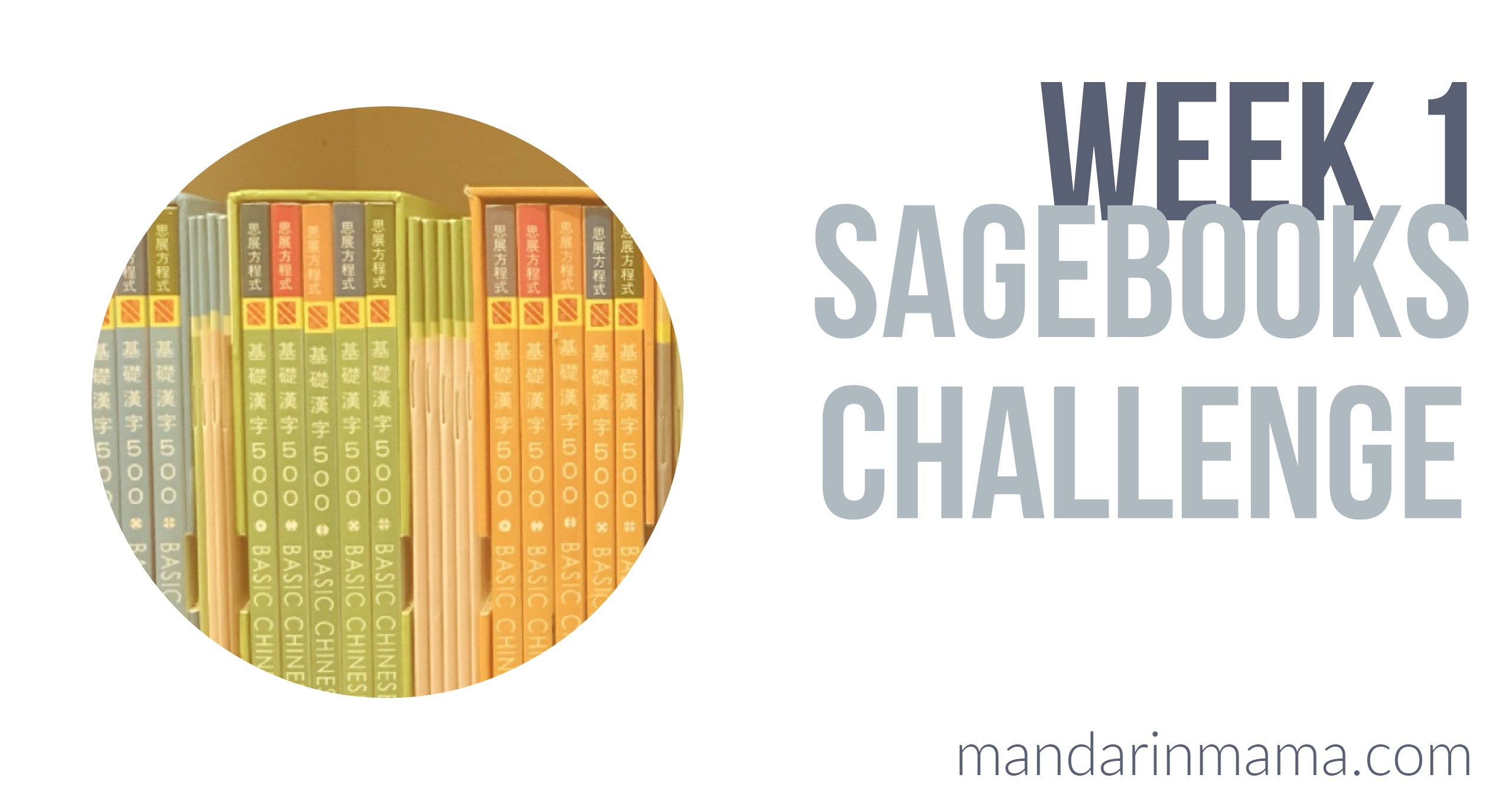
After so many years of writing about Chinese, you’d think that I would run out of things to say. You’d be WRONG though. (But I still love you.) This post sums up all the pieces on Chinese that I’ve written in the last year and half for Sagebooks on their blog. The topics run the gamut from general advice to the particulars of Chinese grammar and why it’s important.
I really enjoyed writing these articles for Sagebooks because they’re a bit different from my usual fare on this blog. It gave me the opportunity to write more from an academic/professional capacity than my glib (though engaging and informative) posts on my own blog. I grew and improved as a writer.
I’ve tried to group them in topical areas, but honestly, they’re all brilliant and you should try to catch them all like the Pokemon they are. Here are the general topics for your convenience:
General Advice
Chinese Linguistic Series
These posts are based off of a few Sagebooks Blog posts that were originally in Chinese. Due to the nature of Chinese being an extremely dense and compact language, relatively short pieces in Chinese spawned multiple posts in English! Hopefully, I did the original justices and brought new ideas to the table.
1) Use Observation to Improve Linguistic Capabilities in Children
This blog post talks about the innate ability of young children to pick up languages. We will be focusing on how observation will increase your child’s linguistic capabilities. In this case, we will be using learning the Chinese language as an example.
2) Memory and Language Development
This week, we will discuss the topic of memory, and how increasing the breadth and depth of our children’s vocabulary enables them to write and express their ideas with ease and fluidity.
3) How Writing Chinese Promotes Thinking
This week, we will discuss how writing is an extension of thinking and how teaching your child to write Chinese helps them develop various approaches to reasoning.
4) Use Questions to Stimulate Thinking and Writing
This week, we discuss how to use questions to stimulate thinking and writing in Chinese. We will be focusing on writing in terms of formulating thoughts and ideas in a coherent, logical argument.
5) How to Improve Writing & Speaking Chinese
This post focuses on the different ways that you can help your children apply speaking and writing Chinese in their lives and why that is important.
6) Improve Chinese Vocabulary (Additional ways)
This post focuses on the progression of learning a language and provides additional ways to help your children apply speaking and writing Chinese in their lives.
7) Learn to Compare and Contrast
In this post, we will discuss how developing the ability to compare and contrast will also help your child build their Chinese language skills.
8) Compare and Contrast 2: Linguistic Elements
This post furthers our discussion on how developing the ability to compare and contrast also helps with building up Chinese language skills. This piece focuses on the many aspects of the Chinese language such as characters, phrases, grammar and more.
9) Linguistic and Cognitive Developments Through Reading Comics
This piece talks about why manga/comics are a really great way to cultivate a love of reading in our children. Many parents often consider graphic novels to be “trash” reading – but it actually can have profound effects on “good” reading.
Chinese Grammar & Other “obscure” things
This series of posts discusses the intricacies of Chinese grammar (no, wait – it’s interesting, I swear), and also explores why we should consider teaching our children a bunch of Chinese things that may seem old-fashioned or too difficult.
This post discusses the bane of many Chinese language learners, children or otherwise, grammar! Being a humble blog post, we will be focusing mainly on how to help our children who are raised in non-Chinese dominant societies with their Chinese grammar, rather than the actual grammar itself.
2) The Benefits of Learning Chinese Poetry
In this article, we will discuss the benefits of teaching our children Chinese poetry, both classical and modern. After grammar, many children, and adults alike, find poetry to be the next horrible thing they are forced to learn. Why then, in the pursuit of Chinese literacy, should we consider introducing Chinese poetry to our children?
3) The Importance of Knowing Chinese Radicals
Many parents may wonder, is there any need to teach radicals to help our children look up words in Chinese dictionaries? To some parents, Chinese radicals seem to be too numerous and too archaic to teach and too difficult to learn. However, if your goal is for your child to become literate in Chinese, or at least, read a decent number of characters, it behooves you to teach your child radicals.
4) 5 Benefits of Learning Chinese Idioms
Every language has idioms and Chinese is no exception. To many parents whose first language is not Chinese, most Chinese Idioms may seem to be a group of characters that produce a meaning not readily apparent from the actual characters used! This article explores why we should teach Chinese idioms to our children.
5) Emotional Intelligence – Expressing Emotions in Chinese
Even if you’re only interested in getting your child to have basic daily conversation in Chinese, knowing the correct Chinese terms for emotions is very necessary. After all, talking about how they feel is a normal part of general conversation.
These posts are general advice for teaching our children Chinese and also serves as a catch all for any articles that don’t fit the first two categories.
A complaint we commonly hear from parents is that teaching Chinese takes up so much time. Between school, extracurricular activities and life, Chinese can often take a backseat or appear to require too much of the remaining free time. Unfortunately, we do not have a Time Turner for sale but perhaps a few of these suggestions will be helpful.
2) When Your Child is a Perfectionist
In terms of teaching our children Chinese, perfectionism can manifest in aspects of applying the Chinese language in their lives, be it listening/comprehension, speaking, reading, or writing. For many children, unless they can understand, say, read or write Chinese perfectly, they might not want to try it at all. This article discusses some ways we can help our children in this area.
3) Using the Power of Story to Teach Chinese
Stories are one of the most powerful methods to teach our children ideas and language. We can harness this same power in our efforts to teach our children Chinese.







